‘Good actors, at their core, are good people’: The rising stars of ‘Next to Normal’
Theater productions in recent years have begun shedding light on mental health, with Next to Normal being credited as the catalyst. Since its Broadway debut in 2009, it has won three Tony Awards and the Pulitzer Prize for Literature. The Sandbox Collective brings the musical to the Philippines this February as the collective’s first show of the season.
Directed by Toff de Venecia with musical direction by Ejay Yatco, it follows the Goodman family, who appear perfectly normal. But deep within themselves, they all carry the same burden—one they are afraid to name—eagerly waiting to be set free.
This is not an isolated case, as sweeping loss under the rug is common in many households. But just how much grief can a body hold, alone? Heavy conversations like these are often shrugged off at the dinner table, but Next to Normal unravels the truth behind this and humanizes each of its characters.
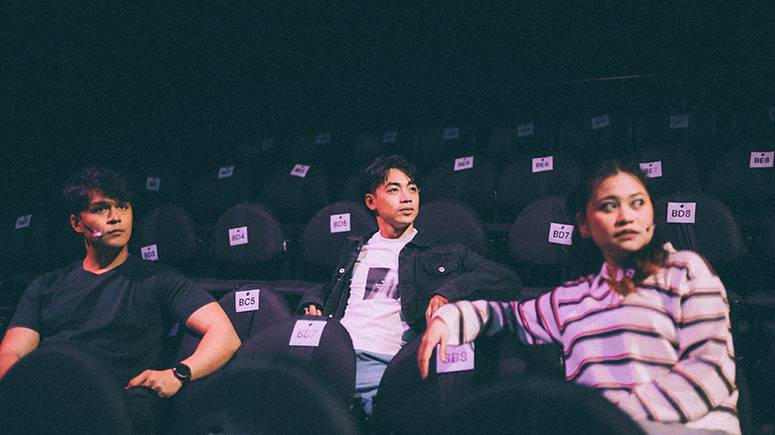
While the musical discusses themes of mental illness (and mental healthcare), it’s also about healing and holding space for one another. It stars theater luminaries Shiela Valderrama and Nikki Valdez alternating as the matriarch Diana Goodman; OJ Mariano and Floyd Tena, who alternate as Diana’s husband Dan; Jef Flores as Diana’s psychiatrist Dr. Madden; and a fresh crop of young talent.
The Sandbox Collective brings the award-winning Broadway musical to the Philippines, opening up difficult conversations on mental health, family and loss.
During the show’s opening weekend last Feb. 1, Young STAR spoke with the six rising cast members about how the Next to Normal changed them. Get to know Sheena Belarmino and Jam Binay who play Natalie, the Goodmans’ perfect daughter; Vino Mabalot and Benedix Ramos who play Gabe, the Goodmans’ elusive son; and Omar Uddin and Davy Narciso who play Henry, Natalie’s boyfriend.

(Contains spoilers for Next to Normal.)
YOUNG STAR: Why is it important to tell stories about mental health and our relationships with each other, like Next to Normal?
JAM BINAY: (Until) now, mental health still isn't as talked about as it should be here in the Philippines. As a society, we love to shove the “resilient” and “always happy and hospitable” mindset down people's throats, to the point that feeling otherwise is deemed hindi matatag ang loob. It is so important to tell stories that shed light on these topics because it opens up conversations between friends, family members, and even strangers. It is a reminder that it is perfectly okay to be vulnerable.
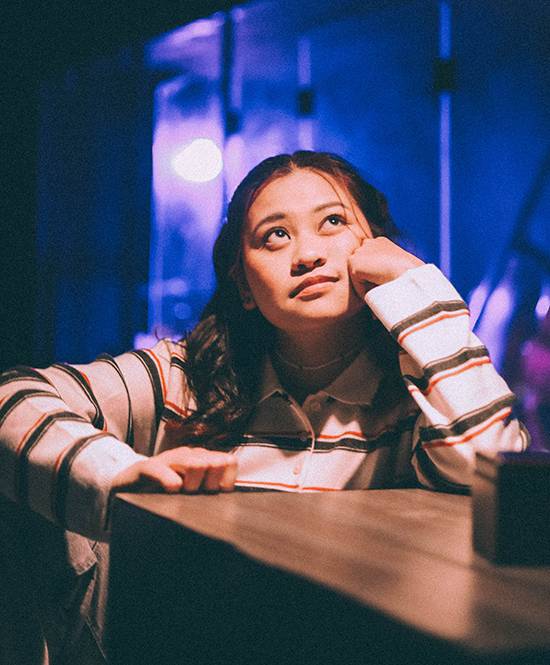
BENEDIX RAMOS: Stories like Next to Normal are super important because they are real. They don’t sugarcoat things. Mental health is something a lot of people deal with but (is) always mystified in discussions. So seeing it onstage makes people feel seen and less alone. Plus, it opens up conversations—not just about struggles but also about how complicated relationships can be when people are hurting. It’s raw, it’s messy, and that’s what makes it powerful.
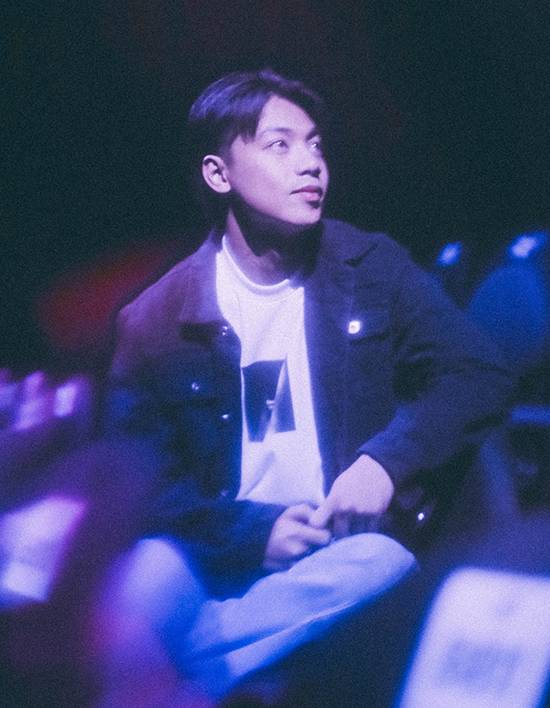
DAVY NARCISCO: Everyone deals with grief and their mental health differently. However, based on my own experiences, processing things is a lot easier when not done alone, and when you have a safe space to comfortably open up. I feel like — and hope that — when people watch productions like Next to Normal, they walk out of the theater with a better understanding of how to support their loved ones by approaching these issues with no judgment, an open mind, and an open heart.

SHEENA BELARMINO: This helps remind people to build empathy and (be) more understanding towards people who might have been through a lot.
OMAR UDDIN: More people (can) become aware, especially about bipolar disorder and how it can affect (a person). I hope more people who don’t know what Next to Normal is about will watch it, relate to the characters, and have a good ugly-cry.
VINO MABALOT: The show opens conversations about grief and mental health in a deeply personal way, especially with our staging. The production design, costumes, and props all strip down the story to its most basic objective, allowing the actors and the music to explore mental health and relationships so intimately that it almost feels voyeuristic. We hope the audience empathizes with every character, sees themselves in each one, and most importantly, learns to extend that same empathy to themselves.
In what ways do you connect with your characters?
JAM (NATALIE): Natalie is a girl who has so much love to give but isn't given the opportunity to share it. She is passionate and dedicated, especially (with) her piano playing, Henry, and even her parents. I resonate with her in that sense; that she is so willing to bare her soul and be vulnerable when it comes to things she truly loves.
SHEENA (NATALIE): As a performer, I usually need to be near-perfect, whether it's (my) image or the life I have. Sometimes putting on a smile is hard when you're going through something; but you have to look like you're not, especially in showbiz. I relate (that) with Natalie. (For both of us,) our happiness and freedom is music. It saved me through my darkest times.
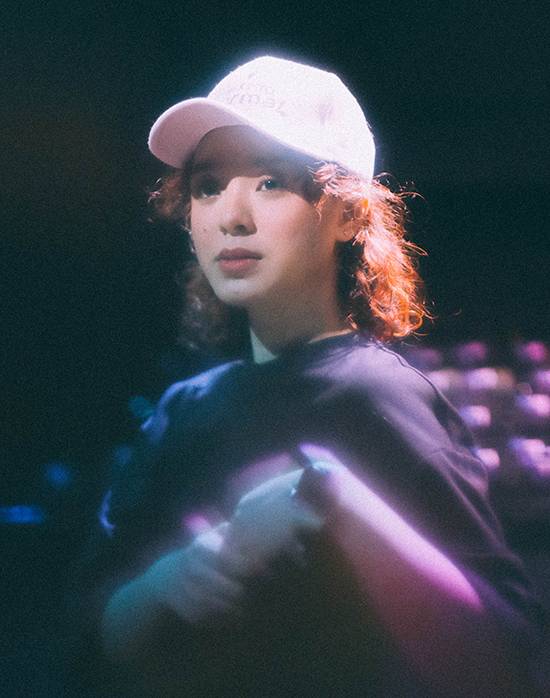
BENEDIX (GABE): I usually find little pieces of myself in every character I play. Even if they’re totally different from me, there’s always something—a feeling, a struggle, or even just a way of thinking—that clicks. It’s like you dig into their world and realize, “Oh, I’ve felt this before,” even if it was in a different situation. That connection makes it more honest when you’re onstage.
VINO (GABE): Playing Gabe has been a deeply introspective journey. In previous stagings, he has often been portrayed as sinister and malevolent — a delusion. But I know my portrayal is different. I co-created this version of Gabe Goodman with Toff and Mark’s guidance, where he exists in two realities: as the manifestation of mental illness, which is common, and now as the embodiment of grief. He is enigmatic, intense, and carries an emotional weight that feels almost unbearable. I feel the same as Vino, too.
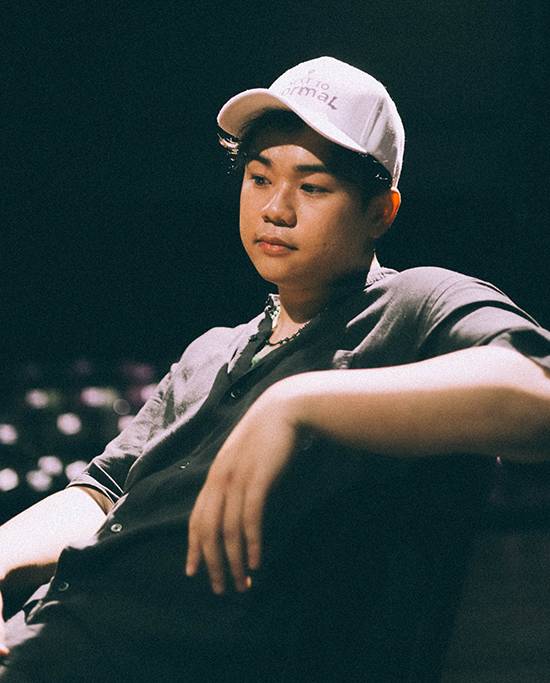
Recognizing that connection, I made a deliberate choice to show Gabe’s benevolence, not just as a haunting presence, but as a pure, loving son yearning to be truly processed and understood by his family. To bring that to life, I had to look deep inside myself and face the darkness in my own heart. I connect with his longing to be seen and his struggle to define himself outside other people’s perceptions. I am coming out of this production a different person.
OMAR (HENRY): I connect with Henry for doing his best to keep it light whenever Natalie goes to a dark turn. Humoring my friends is how I try to help them go through something. It hurts me every time I see them frowning, so I try to get their spirits up and at the same time empathize with them.
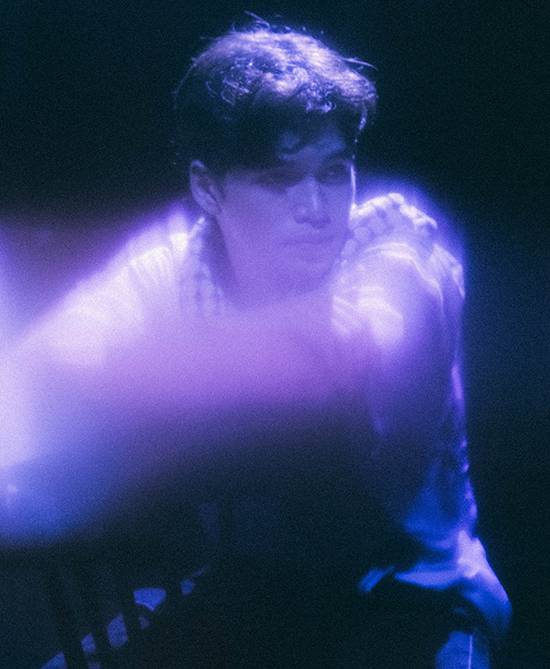
DAVY (HENRY): I love my girlfriend a whole lot!
As a Gen Z in theater, how did Next To Normal mold you as a better actor?
JAM: I can't say that I have personally experienced everything that happens in the show, but it has definitely taught me to be more empathetic and compassionate, be it to myself or to others. I believe that good actors are, at their core, good people.
BENEDIX: Being part of Next to Normal is a game-changer. It’s not just acting; it’s feeling everything deeply and staying present in those heavy moments. It taught me how to be more vulnerable, really listen to my scene partners, and let go of trying to be “perfect” and just be real. I think it also helped me appreciate the power of theater beyond entertainment. It’s storytelling that can hit people hard and make a difference.
DAVY: Given the sensitive nature of the play, it's a big responsibility to portray the characters and their experiences as truthfully as possible to do right by the people who are actually going through these things. However, it is also equally important not to let the heaviness of the material seep into your personal life. While it was challenging to find the balance between these things, doing so has provided me with the discipline to explore the material freely, but leave all the things I felt as Henry behind once I get out of the theater. This is something I can carry with me throughout the rest of my career, as it will help make tackling future roles more sustainable.
SHEENA: Next To Normal is one of the most challenging (productions) I have worked on. It helped me as an actor, not just by honing my skills, but improving my understanding of these topics that people relate to so much. (The role allowed me) to be a voice for those who feel invisible (and I acknowledge) that what they’re feeling is valid.
OMAR: Doing this production helped me hone my acting style and had me practice my English skills a lot. It also trained my empathy towards other characters and my character as well. Honestly, this was one of the hardest musicals I have ever done. It’s a minimalist play so we have fewer props and our set is just six chairs, and we also need to sing like we’re just talking.
VINO: This show is the culmination of my nine years of experience in the theater. I have never been pushed beyond my comfort zone like this, emotionally, vocally, and physically. Next to Normal demands rawness—there’s no room for pretense because the material itself is brutally honest. I have always believed myself to be an actor who specializes in delivering truth onstage, but never on this complex, philosophical scale. Through this production, I’ve also learned that my creativity and talent have a place in the theater community. I’ve always felt like an outsider looking in, but Sandbox welcomed me with open arms. The artistic team and my incredible cast mates value what I bring to the table. I am just so grateful, and I am humbly taking it all in.
***
The Sandbox Collective’s Next to Normal runs until Feb. 23, 2025 at Power Mac Center Spotlight Blackbox Theater, Makati. Get your tickets via Ticket2Me. For more information, follow @thesandboxco.


